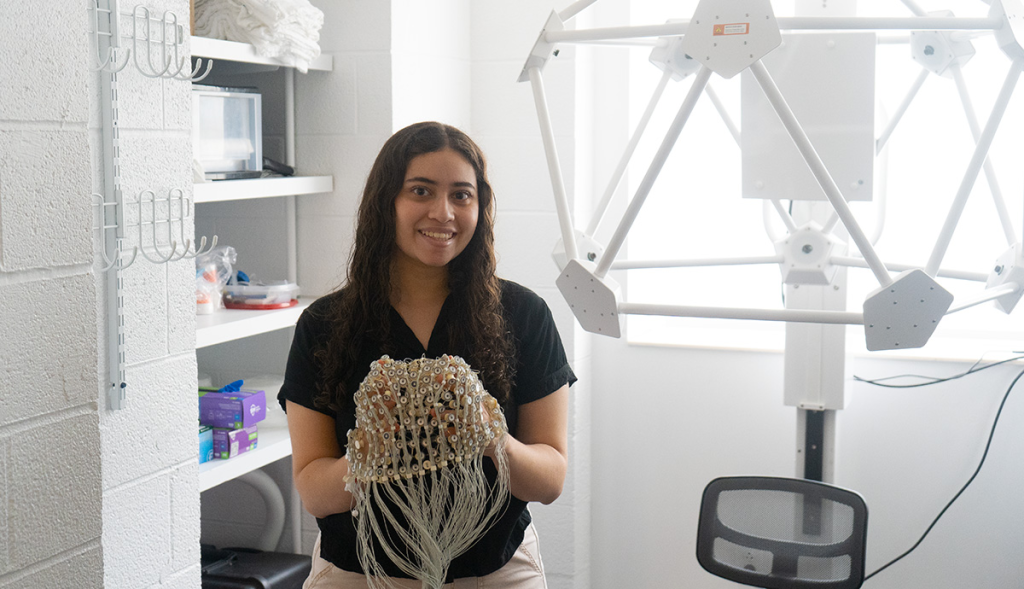
The Cherng Summer Scholars program allows Honors College students at the University of Missouri to explore their passions through research projects aimed at questions they are interested in analyzing. Students who are accepted into the nine-week program participate in projects that are individually designed, with the support and mentorship of a Mizzou faculty member.
This year, there were 12 Cherng Summer Scholars. Meet Camila Gutierrez, a junior biology and psychology double major.
Question: Which faculty member are you working with on your research?
Answer: I am working with Dr. Roberto Ulises Cofresí-Bonilla, an assistant professor of psychological sciences, in the Cofresi Addiction Neuroscience Lab.
Question: What is the focus of your research?
Answer: This summer, my research focused on exploring the association between the Late Positive Potential (LPP) and two crucial risk factors for Alcohol Use Disorder (AUD): alcohol craving and binge drinking. The LPP is an electroencephalography-derived component that helps us measure the brain’s attention allocation and emotional reactivity to specific stimuli. For this project, the stimuli we used consisted of alcohol-related cues. Our sample was centered on a young adult population (ages 21-25) as AUD prevalence peaks during emerging adulthood. Therefore, understanding the factors that influence substance use behaviors in this age group is essential.
Question: What interested you in this specific project?
Answer: My interest in this particular project was born from a previous research project I conducted on the impact of sleep duration on alcohol craving. It made me realize I wanted to analyze both physiological data (such as EEG data) and behavioral data to reach a more comprehensive understanding of the neural processes and risk factors that interplay in the development of alcohol use disorder among young populations.
Question: How nice has it been to be part of the Cherng Summer Scholars program?
Answer: My experience through the Cherng Summer Scholars program has been incredibly rewarding. Pursuing research in an area I’m passionate about, and expanding my knowledge of neuroscience scholarly work, has been a fantastic opportunity for academic growth. Learning alongside my peers, and hearing about the diverse research projects they conducted, was an aspect I really enjoyed. I’m immensely grateful to have been a part of this program and highly recommend it to any Honors College student interested in pursuing research!